Advertisement
A.R.T. Embraces Eve Ensler's Obsessive Political Correctness
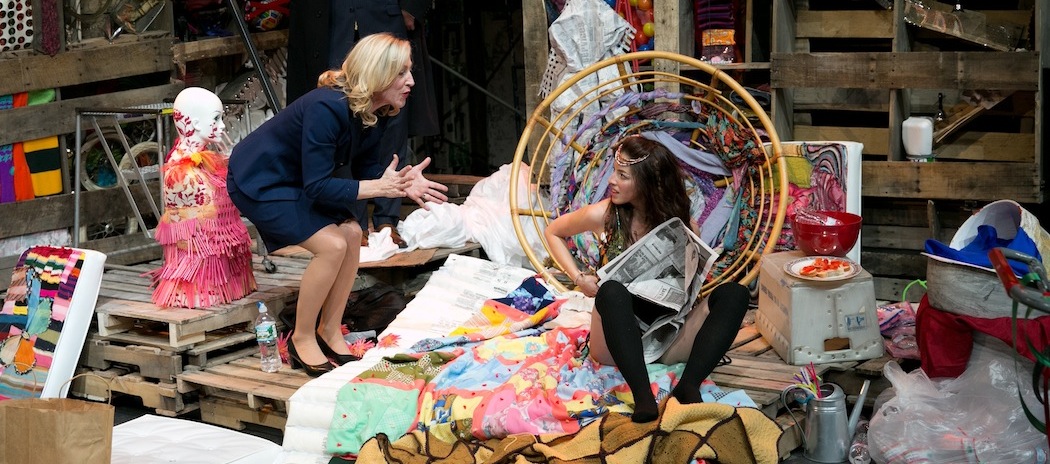
It isn’t until deep in the second act that the word “vagina” pops out of a character’s mouth in Eve Ensler’s “O.P.C.,” which is in its world premiere by American Repertory Theater. But it does remind us why we’re here: The new work is by the esteemed author of “The Vagina Monologues,” whose signature orifice she liberated from the realm of the unmentionable to wrack feminist havoc upon the stage and in the world. Ensler’s heartrending and incendiary 1996 collection of monologues (which she first performed herself) not only won an Obie and made the writer an icon but also launched a global movement to end violence against women.
To borrow a label the play espouses, there is no freegan way “O.P.C.” (at the Loeb Drama Center through Jan. 4), despite its urgent environmental and social concerns, will have such ramifications. An awkward, hyped-up mix of agitprop and Wendy Wasserstein, the new play sandwiches a political debate into a clichéd drama about a mother-daughter conflict in which the ambitious mom, seeking a Senate seat for mostly the right reasons, clashes with an idealistic offspring convinced the system is too broke to be fixed. Daughter Romi is a Harvard dropout and a dumpster-diving evangelist whose personal war against the “tyranny of the new” includes camping in a squat and eating so-called garbage. (And you thought the Bush girls, swigging margaritas while underage, were a political liability.)
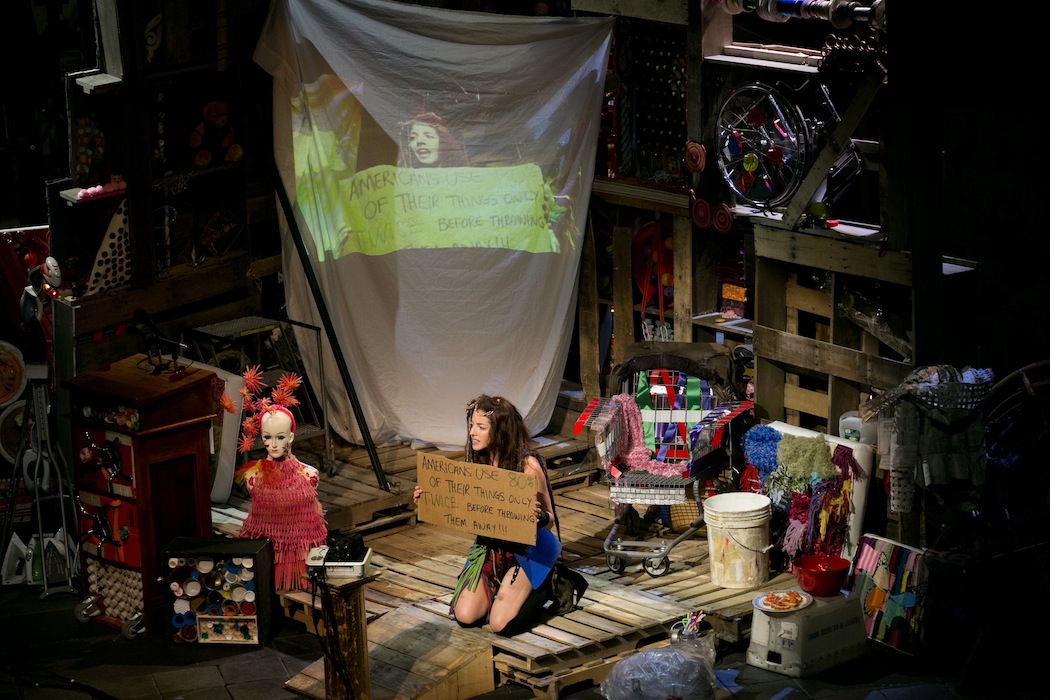
One thing the scavenging Romi is intent on is creative recycling, and the play has some fun with that even as it advocates for it. We first meet this dreadlocked, nose-ringed pixie in her psychedelically decorated warehouse squat, where she’s filming an episode of “Waste Not Want Not,” a self-produced weekly show “birthing the new paradigm,” while fashioning a dress out of discarded drinking straws. Then she shows up at mother Smith’s senatorial-campaign launch bearing yet another piece of “high trashion,” a slinky dress made for mom out of apricot skin. Handed a lemon, or in this case an apricot, Smith makes apricot-ade and puts the thing on. Voila, she looks like a million dollars, not a large Fruit Roll-up, and an environmentally friendly business is born, strutted, and winked at.
At A.R.T. set designer Brett J. Banakis takes the recycling cause to heart, decking Ensler’s cri de coeur in a massive, sparkling array of cardboard cartons, wooden palettes, old junk, and plastic bottles that do make Romi’s encampment “magical.” And costume designer Esosa tosses various styles into a sartorial fruit salad. But among the detritus being put to creative reuse would seem to be 1960s theater itself, complete with flashing lights, pounding music, and colorful graffiti on bed sheets. Did someone dive into artistic director Diane Paulus’s Tony- and Elliot Norton Award-winning revival of “Hair” and climb back up with the whole Age of Aquarius? And if the sympathy between production and theme is more than a gimmick, where’s the dumpster full of coffee and cookies for the audience to root through at intermission?
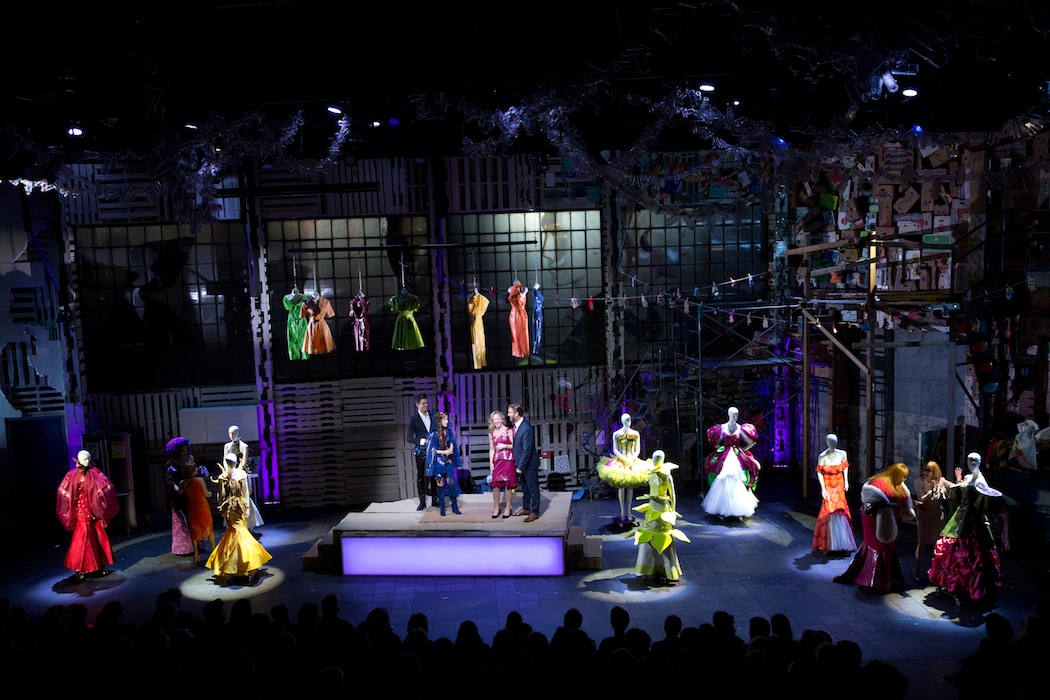
At the core of “O.P.C.” — which stands for Obsessive Political Correctness, a disease with which Romi is eventually diagnosed — is a debate between well-meaning, garden-variety liberalism, which is making little headway in the race to save the planet, and an impassioned extremism that eschews capitalism as a contributor to such problems as global warming and economic inequity. But in Ensler’s telling, it’s hardly a fair fight.
Curiously, since the 61-year-old Ensler is a card-carrying member of the “Heidi Chronicles" generation, she has made Smith something of a feminist shrew who wants less to change the world than to win, win, win the chance to do so. Oscar winner Melissa Leo, originally slated to play the part, dropped out of the production over what were called “artistic differences,” and one can see why. If Smith were just a ruthless caricature, that would be one thing. But Smith is also supposed to be a committed Democrat and caring mom paving the way, as she walks over men including her nice husband and an opportunistic lackey, for her daughters.
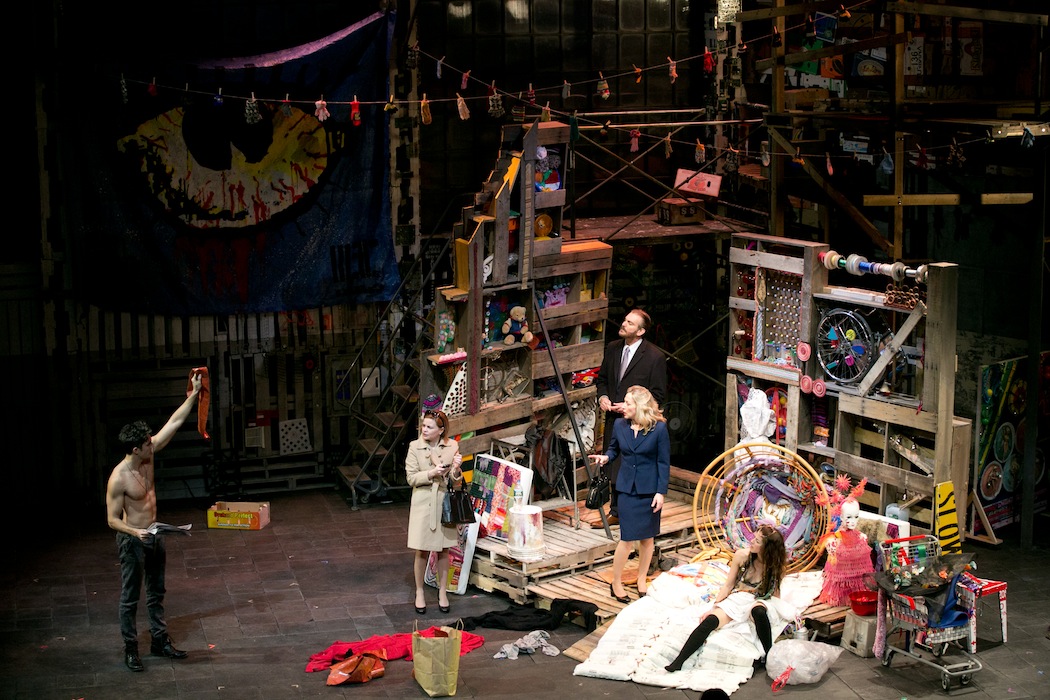
Romi, by contrast, though her cohort is thinly parodied (along with various journalists, including Oprah and Baba Wawa), is a sweetheart worrying herself sick (or so the psychiatrists say) over mindless consumerism, climate change, the ozone layer, endangered songbirds, and polar bears. Even her crack-up, when she goes orgasmic over Prada boots and begs for rough sex, is adorable in its squirmy way. And though reference is made to Romi’s not bathing, she looks, in the person of actress Olivia Thirlby (the films “Juno” and “Dredd”), both clean and, whether in blueberry or seaweed, chic.
Ensler obviously cares, well, obsessively, about the issues that her play (which has been in the making for years; there was a reading in Santa Monica in 2009) invokes. But though the finished product includes broad parody and send-ups of both omniscient psychiatry and the runway, the playwright has not written a political farce or satire á la Dario Fo. Instead, “O.P.C.” cloaks its agenda in a family drama that’s more strident than complicated. One critic described “The Vagina Monologues” as being both “a polemic and a poem,” but there is little poetry here — unless you count a brief, sweet scene between Romi and a fellow inmate at the “healing facility” to which she’s remanded after having an inconvenient breakdown.
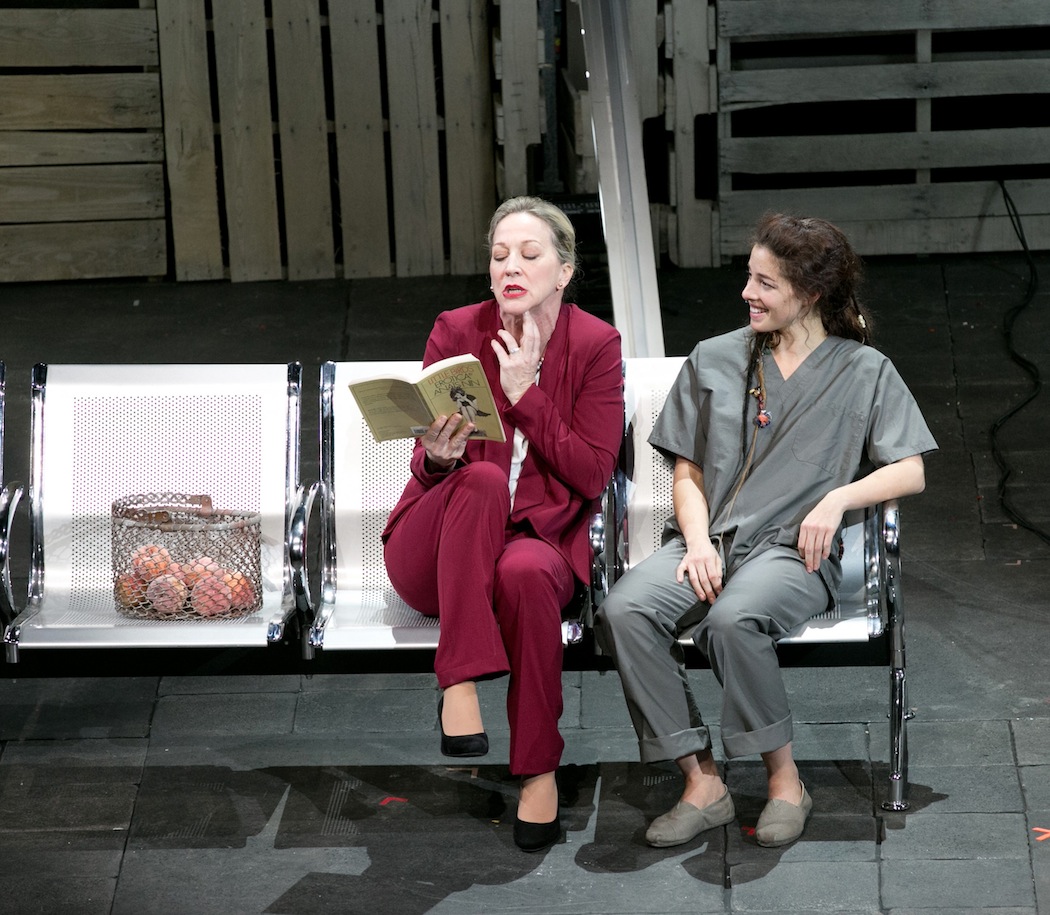
Thirlby goes farthest toward making her character a distinct person with an endearing nervous laugh and a bravura way with those boots. There is also a sharp turn by Nicole Lowrance as Smith’s more conservative daughter, Kansas, who spurts a geyser of sibling jealousy about Romi’s being named for the city of gladiators, Fellini, and Gucci while she bears the moniker of an unglamorous locale both corny and flat. Michael T. Weiss is aptly innocuous as the girls’ virile-milquetoast dad, and Kate Mulligan does her best to let some tenderness leak through Smith’s chiseled veneer. But both the play and Pesha Rudnick’s production, with its retro onslaught of sight and sound enhanced by oft-multiplied multi-media, seem past their shelf date. Perhaps that adds to the point about never throwing things out?
